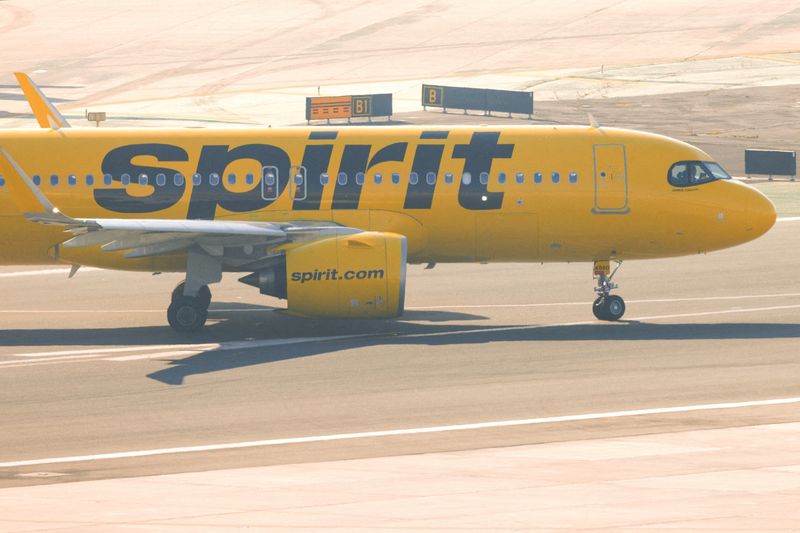By Rajesh Kumar Singh
CHICAGO (Reuters) - Demand for high-end travel is booming, and U.S. carriers are in a rush to seize on it.
Airlines are adding more comfortable and bigger seats on their planes to attract customers willing to pay more for a better travel experience. Some airlines known for low-fare models like Southwest, Spirit and Frontier are even shifting away from their traditional business models to woo them.
Airline executives say consumers have cut their spending on goods in favor of experiences, with travel their topmost priority after the COVID-19 pandemic. U.S. carriers are betting that the travel boom is a multi-year phenomenon and are vying to grab a bigger slice of the high-end market.
The effort is part of a broader industry strategy to find high-margin revenue streams to offset rising labor and operating costs. A survey in May by consulting firm Deloitte found more travelers were ready to pay for a more comfortable flying experience than a year ago.
"That segment of passengers is as strong as the industry has ever seen it," Alaska Airline's Chief Financial Officer Shane Tackett said in an interview.
Stronger demand for premium cabins helped Alaska post the highest adjusted pre-tax margin among major carriers in the second quarter. It also boosted earnings at Delta and United Airlines.
Alaska has retrofitted its entire regional fleet this year to add 400,000 premium seats. It now has plans to add 1.3 million premium seats a year to its mainline fleet.
The airline and its regional unit had 326 planes in their fleet at the end of June.
Last year, Delta said all of its planes would have premium seats. At United, premium seats per flight in North America are estimated to increase by 75% by 2026 from 2019.
In all, premium seats at U.S. carriers are expected to increase by 50% in 2026 from before the pandemic, said Xavier Smith, director of research at market-research startup AlphaSense.
There is, however, a risk of airlines becoming too aggressive, resulting in a supply glut that hurts pricing power. Airline earnings are already suffering due to excess supply of seats in the domestic market.
Smith said carriers must introduce capacity slowly to protect their pricing power.
The success of the premium strategy also depends on reliability. Delta CEO Ed Bastian last year said it was the central tenet of the airline's playbook to attract travelers willing to pay for something other than just a seat.
But analysts say the Atlanta-based airline's recent flight disruptions, following a global cyber outage, have dented its premium brand image. Delta declined to comment.
Similarly, JetBlue's earnings are languishing despite its premium offerings. Brett Snyder, an airline analyst who runs the popular industry blog Cranky Flier, attributed it to the New York-based carrier's operational challenges.

On Tuesday, JetBlue said operational reliability is a top priority for its customers and an essential element of the company's strategy to return to sustained profitability.
"If airlines think they can get away with running a poor operation, they're mistaken," Snyder said.